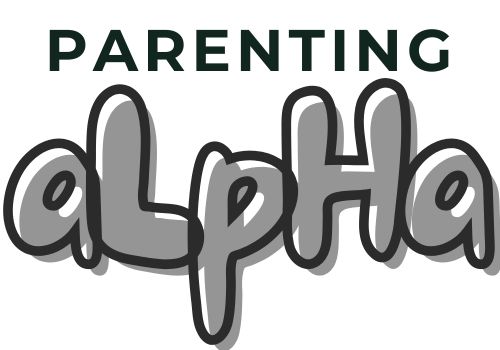Many parents find themselves buried in a complex financial landscape – balancing bills, debt, investments, and savings without formal education on how to manage it all. They wish they had learned these and other personal finance skills much earlier.
A survey from the National Endowment for Financial Education (NEFE) revealed that nearly 9 out of 10 adults believe they would have made better financial decisions if they had been taught basic financial skills early in life.
Imagine if you could go back to your high school days armed with the knowledge of how to budget, save, invest, and avoid debt traps.
The lack of early financial education often leaves people struggling with their finances well into adulthood.
Here are some common financial struggles parents face today that could have been avoided with early financial education:
- Debt accumulation: Credit card debt, student loans, and mortgages often accumulate because of poor financial planning.
- Lack of savings: Without proper guidance, many adults find themselves living paycheck to paycheck without enough savings for emergencies or retirement.
- Overspending and budgeting issues: The inability to track spending and live within one’s means often results in financial stress and long-term hardship.
- Missed investment opportunities: Many adults only start learning about investment options like stocks, bonds, and real estate in their late 20s or 30s, missing years of potential growth.
Why Kids Should Learn Personal Finance in High School
Today, it is more crucial than ever for kids, especially Generations Z, Alpha and Beta, to learn personal finance while still in school.

To prepare today’s children for the financial realities they will face as adults, it is essential to equip them with personal finance knowledge in high school.
Here are key reasons why financial literacy should be part of their curriculum:
1. Building Strong Financial Habits Early
Financial habits form early in life, and teaching kids how to budget, save, and invest in their teenage years sets them on a path for long-term financial success. By learning how to make informed decisions about money, they’ll be less likely to fall into bad financial habits that can be difficult to break later.
2. Preparing for the Real World
Once high school ends, many young adults enter the workforce, start college, or even start businesses. Understanding personal finance equips them with the skills to navigate life’s big financial decisions—whether they are applying for student loans, renting their first apartment, or managing their income. Financial literacy empowers young adults to take control of their financial future.
3. Avoiding Debt Traps
Without financial literacy, young people are more susceptible to predatory lending practices, credit card debt, and loans that can spiral out of control. Teaching kids how interest rates, credit scores, and debt work ensures they can avoid these traps and make informed borrowing decisions when needed.
4. The Rise of Digital Money Management
As digital banking and cryptocurrency become more mainstream, today’s kids will interact with money in ways that were unimaginable a generation ago. Learning about the basics of digital financial tools, from budgeting apps to blockchain, will prepare them for a future where managing money requires both traditional and digital fluency.
5. Preparing for Entrepreneurship
Generation Alpha is growing up in a world where entrepreneurship is highly valued, and the gig economy is expanding. Personal finance education in high school can help them understand how to budget for startups, manage taxes, and create financial strategies that will help their businesses grow and thrive. These entrepreneurial skills are critical in an age where the traditional 9-to-5 job model is rapidly evolving.
6. Reducing Financial Stress in the Future
A strong foundation in personal finance helps reduce financial stress in adulthood. Knowing how to handle money, invest for the future, and manage financial risks brings a sense of control and peace of mind. This lowers the likelihood of stress-induced conditions, which often stem from financial hardship, such as anxiety and depression.
How Personal Finance Can Be Integrated into Education Today

The integration of personal finance education into high school curricula doesn’t have to be complex or take up an enormous amount of time. Schools can introduce courses or modules that cover the following essential topics:
- Budgeting and saving: Teaching kids how to create and stick to a budget, save for future goals, and differentiate between needs and wants.
- Understanding credit and debt: Explaining how credit cards, loans, interest rates, and credit scores work so students can make informed borrowing decisions.
- Investing: Introducing the basics of investing, compound interest, and the power of starting early.
- Taxes: Helping students understand how taxes work and why they matter.
- Financial planning for life goals: Teaching students how to set financial goals, such as buying a home or saving for retirement, and how to create a roadmap to achieve them.
Teachers can also use real-world scenarios to make the content more engaging. For example, students could create mock budgets, invest in simulated stock portfolios, or calculate loan payments based on real interest rates.
The Ripple Effect of Financial Literacy
The benefits of financial education go far beyond individual well-being. When young people are financially literate, they’re less likely to fall into debt, live paycheck to paycheck, or depend on government assistance. This contributes to a stronger, more resilient economy.
According to Cambridge University Press,
Notions such as human capital accumulation, expected rates of return, and opportunity costs, or interest on student loans – topics sometimes considered too dry to attract children and youth – all provide a good guide of the type of knowledge that is needed to make decisions early in the life cycle.
Moreover, financially literate learners tend to make better decisions for their families, communities, and even the environment. They are more likely to contribute to charity, invest in sustainable businesses, and support economic policies that foster equity and financial inclusion.
The Last Word!

For many parents today, the wish that they had learned personal finance in high school stems from the realization that better financial education could have made their adult lives significantly easier.
The experiences of struggling with debt, budgeting, and savings could have been avoided if only they had been equipped with the right tools earlier in life.
Now, as we look at the future of education, it is clear that personal finance should no longer be an optional skill but a fundamental one for today’s kids. Empowering the next generation with financial literacy is one of the best investments we can make in their futures, ensuring that they grow up to be confident, financially responsible adults in a complex global economy.





Leave a Reply